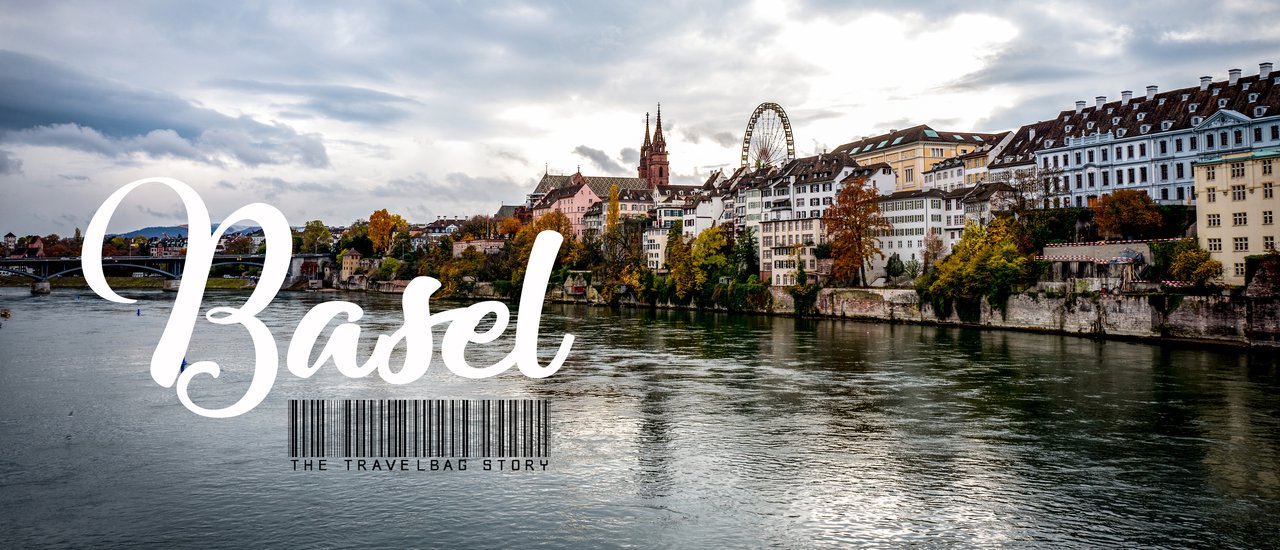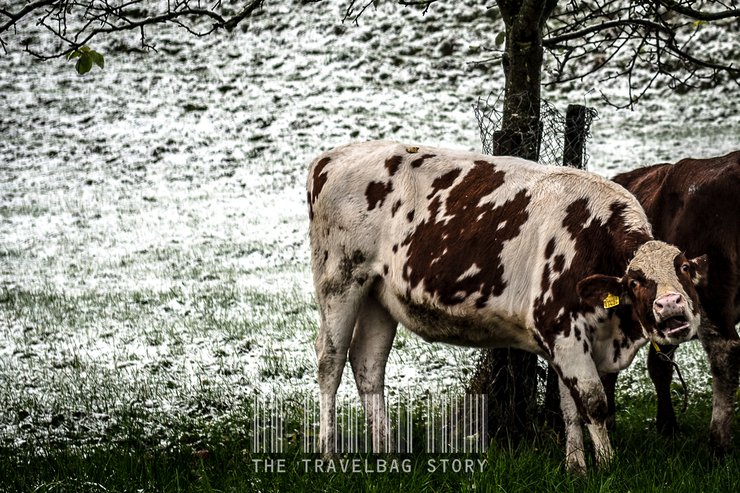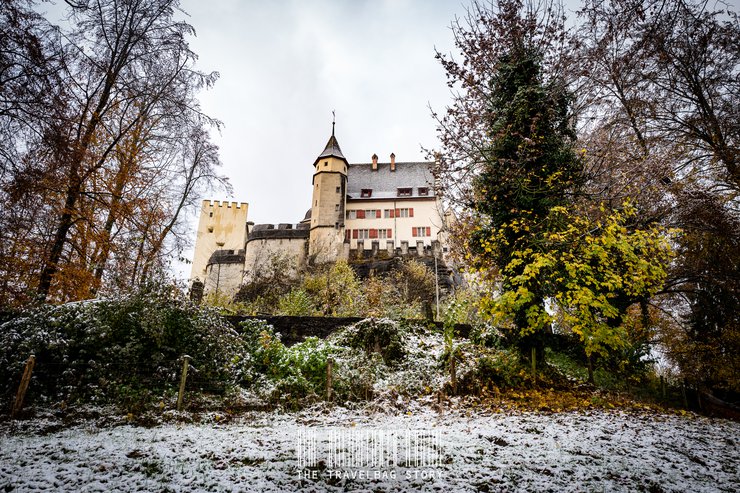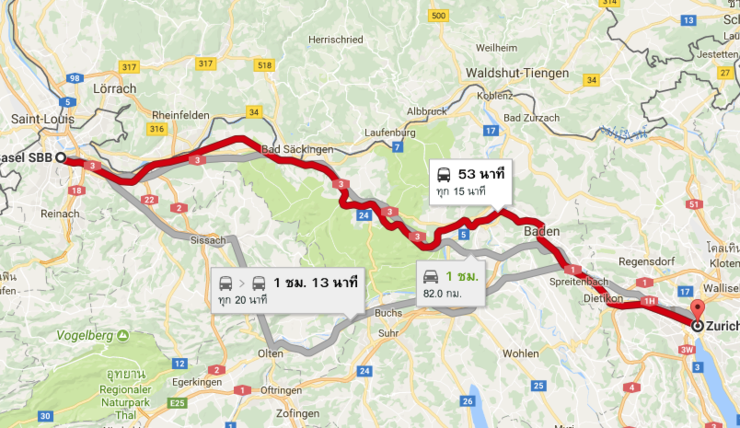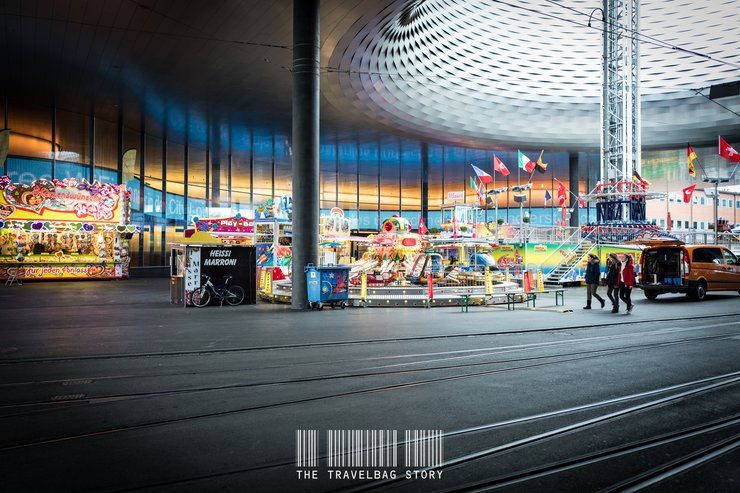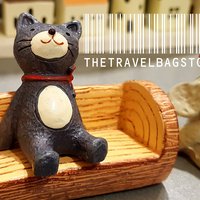Nestled amidst the picturesque landscape of Switzerland, Basel stands as a hidden gem, often overshadowed by its more renowned counterparts. While it may not boast the dramatic natural beauty of Interlaken or the historical grandeur of Lausanne, Basel possesses a unique charm that sets it apart. Situated at the crossroads of Switzerland, France, and Germany, Basel has evolved into a vibrant international city, a melting pot of cultures and a hub for global organizations. Home to the Bank for International Settlements, the central bank of central banks, Basel exudes an air of sophistication and financial prowess. Despite its cosmopolitan nature, Basel retains a tranquil ambiance, akin to a reserved yet profound accountant. Even on a day shrouded in overcast skies, Basel's allure captivated me, leaving me with a lingering sense of intrigue.




Leaving Zurich early in the morning, the weather was extremely cold. The distance between Zurich and Basel is not far, only about an hour's drive, similar to the distance between Ayutthaya and Bangsaen in Thailand. Along the way, we passed Jurapark Aargau National Park, where the first snow had already fallen thickly, even though it was only early November. We stopped for a break at Lenzburg Castle, which is located on a small hill. After taking some pictures of the snow, we had to continue on to Basel, as the castle was closed that day. We had planned to enjoy a cup of coffee while admiring the snowy view.

Upon arriving in Basel, I parked my car at the train station, intending to take a tram into the city center. However, I encountered a challenge: the tram ticket machines only accepted coins. Despite the lack of ticket inspectors on board, I felt it was important to purchase a ticket to avoid potential embarrassment. Fortunately, I found a McDonald's nearby and asked for change. To my surprise, I met a young Thai manager in her early twenties who was overseeing older Western chefs. Impressively, she not only offered me a free McCafe (for which I was incredibly grateful) but also provided me with sightseeing advice. She informed me that Basel was a small city and that walking was the best way to get around, eliminating the need for trams. Indeed, within ten minutes of leaving the restaurant, I was in the heart of Basel, enjoying the charming atmosphere. It seemed that Basel was hosting a festival during my visit, adding to the lively ambiance. I even stumbled upon a renowned Thai restaurant selling delicious-looking noodles. The manager assured me that the broth was authentically Thai and incredibly flavorful. However, the price tag gave me pause. Despite my craving for Thai food, I had already been away from home for twenty days, escaping the summer heat. Luckily, I was returning home the next day, so I decided to skip the thousand-baht noodles.







Basel is a relatively small city, and its tourist attractions are not as prominent as those in other Swiss cities. While the old town retains a wealth of historical buildings dating from the Middle Ages to the Renaissance, most tourists visit Basel for shopping or as a base before exploring the Jura Peak (although I would recommend staying in Bern or Fribourg, which are much closer). The Black Forest in Germany is also within easy reach.





Basel's Old Town, situated along the Rhine River, is the city's sole landmark. The Basel Minster, an ancient cathedral with numerous sandstone sculptures, including one depicting St. George slaying the dragon, is visible from the main bridge connecting the Old and New Towns. Interestingly, during my visit, a temple fair was taking place, resembling those held at Thai temples.














Basel joined the Swiss Confederation in 1501. The city's history dates back to the Roman era, when it was part of Germany. Basel gained prominence as the seat of the Bishop of Augusta Raurica in the 7th century, when the church held significant power and bishops ruled individual cities. Basel was ruled by a succession of bishops and belonged to various surrounding kingdoms, including Germany and France. It was burned down by Magyar troops from Hungary before being incorporated into the Holy Roman Empire in 1032. Following the empire's collapse, Basel governed itself for a period before joining the Swiss Confederation, where it remains today.



As mentioned, Basel's history is not particularly remarkable due to its location on the border of three countries. This has resulted in it being more influenced by its surrounding nations than in creating its own grand history. However, this has led to its prominence as a diplomatic city, especially since the Middle Ages, when it became a major center for European trade. Situated on the Rhine, the longest river in Western Europe and a historical European Silk Road, Basel has benefited from its strategic location. Despite its lack of hustle and bustle, its cosmopolitan atmosphere, and relatively low tourist numbers, Basel has been ranked among the cities with the highest quality of life in the world in some years. Visitors can immediately understand why this is the case.
The commercial heart of Basel is located in the Martplatz or Market Square, where the red Renaissance-style town hall stands tall. This area is home to luxury brands and a pedestrian zone on Saturday mornings. However, the most prominent feature is the abundance of watch shops, befitting Switzerland's reputation. Interestingly, most locals do not purchase watches in Switzerland. A 20-minute tram ride on line 8 takes you to a large shopping center in Germany, where prices may be comparable but without the added tax burden, as Switzerland is not part of the EU. Consequently, long queues form at the border, partly due to Swiss residents seeking tax refunds. However, upon entering Switzerland, it is crucial to be cautious, as Swiss customs officials are vigilant and strategically positioned opposite their German counterparts.





Finally, we can take tram line 8, which is probably the only cross-border tram line in the world, as it terminates in Weil am Rhein, Germany. This small town has a surprisingly large shopping mall with free parking, a rarity in Europe. Most of the customers are foreigners who work in Basel, as goods in Germany are much cheaper than in Switzerland, and foreigners do not have to pay VAT. So, let's cross the Rhine River and take a look at the German side. Thank you for following www.facebook.com/theTravelBagStory.



TravelTherapy
Wednesday, October 9, 2024 6:02 PM

